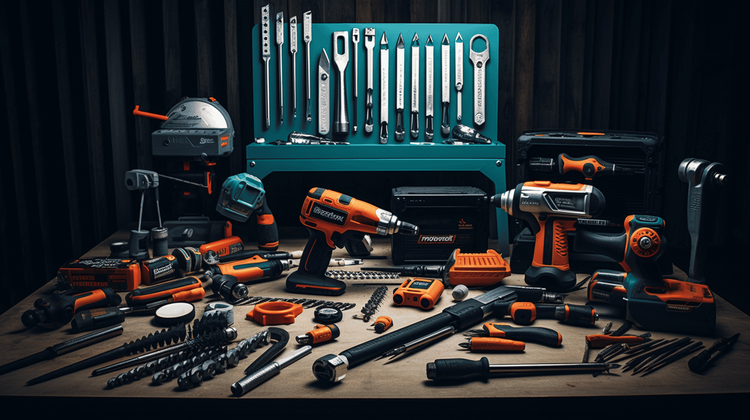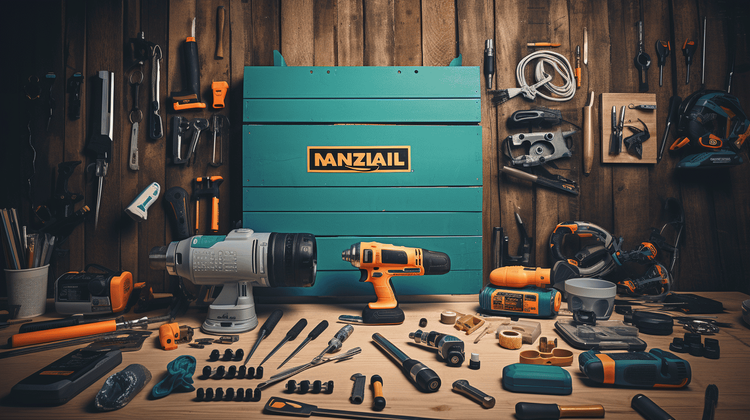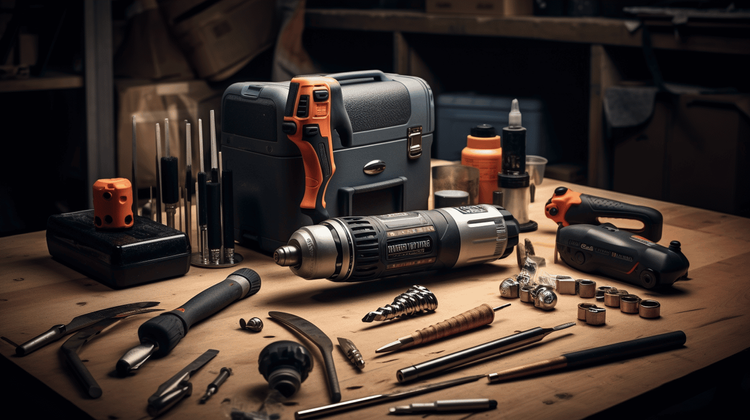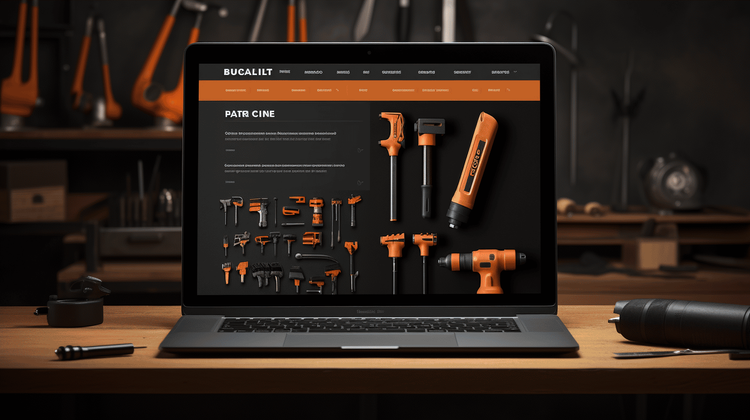Must-Have Tools for DIY Enthusiasts: Building Your Essential Toolbox
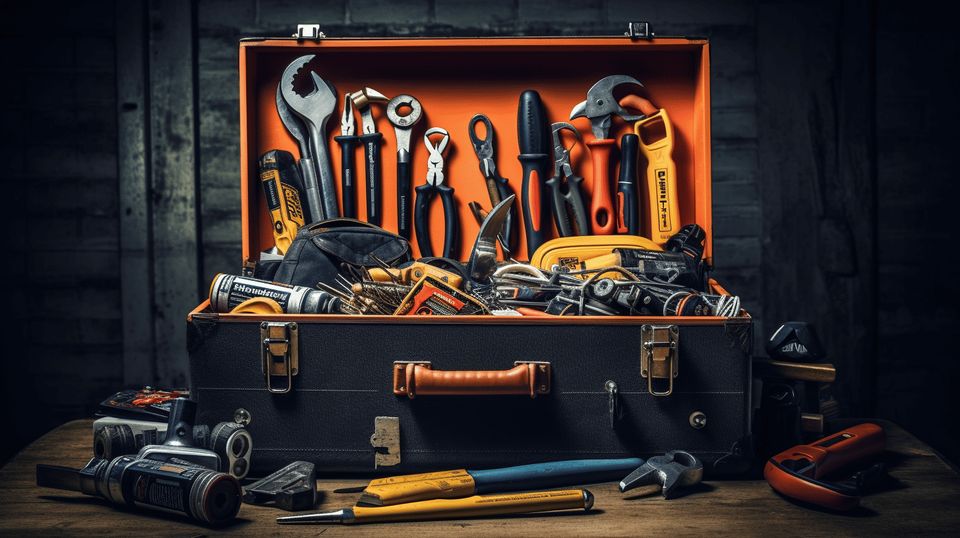
Navigating through the world of Do-It-Yourself (DIY) projects can often be a daunting endeavor, especially for novices taking their first steps. Be it assembling new furniture or fixing household items, knowing the right tools to use can make a world of difference. While there are a plethora of tools out there, equipped for every conceivably possible task, having a basic set of essential tools can help you tackle the majority of DIY projects easily. This article aims to curate a list of must-have DIY tools, focusing not only on their basic functionality but also their quality, maintenance and safe storage. Let’s embark on this illuminative journey to build your ultimate toolbox.
Iconic DIY Tools
Maybe it's the weekend, or you finally have some free time on your hands. You spot a DIY project that you've been wanting to get your hands on. As you gear up to unleash your creativity and bring your vision to life, you ponder over the tools necessary for the task.
A Basic DIY toolset is like a knight's suit of armour. It arms you with all you need to tackle any mission head-on. This section delves into some iconic DIY tools that should be part of every handyman's toolbox or garage. These tools, from hammers and screwdrivers to levels and wrenches, are integral to a DIY enthusiast's armoury.
The Hammer: A DIY Staple
First up is a truth universally acknowledged: a hammer is considered one of the most essential tools for any DIY enthusiast. This simple, yet effective tool comprises a sturdy handle and a hefty head designed for pounding nails into, or pulling nails from various surfaces. Hammers are versatile, catering to an array of tasks beyond simple nailing - tireless companions in your DIY ventures.
Screwdrivers: Flathead and Phillips
Screwdrivers are another indispensable constituent of the DIY toolkit. You'll primarily encounter two types: Flathead and Phillips. A variety of tasks necessitate the use of these drivers. From assembling furniture to opening up appliances for repair, a set of screwdrivers – and the quality of this tool cannot be compromised, as you wouldn't want it to bend or crumble during use – is necessary.
Tape Measure: Precision in Action
Whether you're making a new bookshelf or curtaining your windows, precision is paramount. That's where a tape measure steps in. It is crucial for making precise measurements, helping you avoid the dreaded 'lopsided' final product or unnecessary adjustments. The tape measure helps you hit the bullseye right with your first shot.
Pliers: Versatile and Handy
Pliers are the equivalent of an extra pair of hands. With jaws that grip or pull certain objects, their applications are versatile, ranging from electrical tasks to simple home improvements.
Utility Knife: A Cut Above
A cut above the rest, the utility knife is the unsung hero of the toolbox. You might use it to cut through tape, cardboard, or even more resilient material. There's no underestimating its importance despite the blade's slender appearance. Safety is important here, so ensure that the knife has a retractable blade.
The Level: Balancing Things Out
Next up, the level. Unsurprisingly, its main job is to confirm whether a surface is ‘level’ or 'plumb' - thereby ensuring the balance and stability of your projects. This tool is particularly useful when hanging artwork or installing cabinets.
Adjustable Wrench: Grip and Turn
Last, but definitely not least, is the adjustable wrench. Along with its companion, the screwdriver, it forms the foundation of the DIY toolkit. This wrench adjusts to grip nuts and bolts of various sizes, allowing for simple tightening or loosening.
The cover is never the book, and this is true for all the tools we just visited. Simple in appearance, yet mighty in action, DIY tools represent the backbone behind many successful DIY projects. Practical know-how combined with these handy instruments will equip you with all needed for making your DIY dreams become a beautiful reality.
Power Tools for DIY Enthusiasts
Do you break into a smile when you enter a hardware store? Do the words "do-it-yourself" invigorate your spirit? If yes, then you're a DIY enthusiast, and power tools should be your best buddies. In this realm, versatility and convenience are paramount and no power tool epitomizes these characteristics quite like the power drill.
Power Drill: A Multipurpose Marvel
A power drill is an indispensable tool for anyone who enjoys taking on home improvement projects. It's the Swiss Army knife of the power tool world, and its significance can't be expressed enough.
Here's why the power drill is a must-have for any DIY enthusiast:
- Versatility: With a power drill, you're not just buying a single-use tool. Swap the drill bit, and you've got a completely different tool! One minute you're drilling holes to mount a shelf, and the next, you're driving screws to assemble your newly bought coffee table.
- Power: Is there anything more satisfying than effortlessly drilling a hole in a stubborn piece of lumber? The power that comes with these tools is a DIY-er's dream, giving you the ability to punch through any material like a hot knife through butter.
- Time-saving: Using a power drill can save you heaps of time. Manual screwdrivers and hand drills take significantly longer to get the job done. The power drill's speed will allow you to complete tasks quickly, so you can move onto the next item on your DIY list.
It bears mentioning that power drills come in various types, each with its own set of strengths. From cordless drills that offer portability to hammer drills that can pulverize concrete, it's worth considering what you will be mainly using it for before making a purchase.
Nevertheless, one indisputable fact remains. Whether you're a seasoned DIY warrior or a beginner looking to dip your toes into the exciting world of home improvement, a power drill is a multipurpose marvel that deserves a prominent place in your toolbox. It is, indeed, highly recommended for a variety of tasks such as drilling holes and driving screws, making it a genuinely indispensable tool for DIY enthusiasts.
Choosing the Right Tools: Quality Matters
Choosing the right tools isn't just about getting the job done; it's about doing it with finesse. And for that to happen, quality should be your go-to criterion. A tool's value can be measured by the accuracy of its performance, its durability, and the comfort and ease it provides during use. Regardless of whether you’re a seasoned professional or a DIY enthusiast, selecting high-quality tools is integral to your work's success.
For instance, looking forward to carrying out some home upgrades? Then you don’t want to experience the frustration of a tool breaking down in the middle of a task, or worse, causing an accident. Quality tools offer a safer, more reliable, and ultimately, more satisfying experience.
Selecting premium tools might seem like a massive investment upfront, but it pays off in the long run. Here are some reasons to consider:
- Durability: A high-quality tool is built to last. You don’t have to worry about regular replacements, as they have a longer lifespan than sub-standard ones.
- Performance: They deliver precise results, with lesser chances of error. With quality tools, you can count on superior performance that translates into flawless work.
- Cost-effective: While the initial cost might be higher, the need for constant repairs and replacements makes cheap tools more expensive over time.
"The bitterness of poor quality remains long after the sweetness of low price is forgotten." – Benjamin Franklin
If your intention is to get the best value for your money, choosing high-quality tools should be a no-brainer. They not only offer excellent dependability, but they also provide efficiency that could make your work easier and more enjoyable. Furthermore, a quality tool is an investment that will keep on giving for years to come, embodying the true essence of value for money. In the realm of tools, quality truly matters!
Maintaining and Safely Storing Your Tools
When it comes to the realm of craftsmanship, be it woodworking or any other handiwork that requires specialized tools, one cannot emphasize enough how crucial tool maintenance and safe storage really are. By diligently maintaining and safeguarding your tools, you not only extend their longevity but also ensure an efficient and safer use in all your projects.
The Importance of Tool Maintenance
Despite their rugged look and feel, tools are not invulnerable. They can degrade over time without proper maintenance. Rust, dullness, wear, and tear are some common issues that can severely impact a tool's performance and lifespan. Thus, it becomes imperative to engage in proactive tool maintenance to keep them in tip-top shape. Let's delve into the reasons why this is so critical:
- Preservation of functionality: Regular maintenance ensures that your tools operate at their optimum capacity. It helps in preventing any possible degradation that could affect the overall working of the tool.
- Extension of lifespan: A well-maintained tool lasts significantly longer, avoiding the unnecessary cost of frequent replacements.
- Safety assurance: A faulty or degraded tool is not only less efficient but also dangerous. Regular upkeep reduces the risk of accidents and injuries.
Safe Storage: Your Security Blanket
Along with tool maintenance, secure tool storage is an equally vital aspect of tool management that deserves your attention. Here's why it matters:
- Protection against damage: If stored improperly, tools can be exposed to harmful elements such as moisture and dust that can cause corrosion or other types of damage. A designated place for each tool guards them against any external threats.
- Prevention of loss or theft: By having a permanent storing place, you minimize the chances of misplacing your tools or having them stolen.
- Enhanced safety: Proper storage decreases the probability of accidents caused by haphazardly strewn tools.
In essence, a well-implemented system for tool maintenance and storage not only ensures they serve you for longer periods but also facilitates a safe working environment. So, the next time you finish a project, remember that your job isn't done until your tools are cleaned, maintained, and securely stored away. After all, take care of your tools, and they'll take care of you.
Conclusion
Venturing into DIY projects is not about buying all the tools out there. It's about adopting a systematic approach, beginning with essential hand tools, progressing to advanced power tools, and caring for and storing your investments wisely. Understanding what you require and selecting the appropriate high-quality tools is a significant part of your success.
At Ultra Handy, our goal is to put success within your reach. That's why we offer a wide range of high quality, reliable tools in our Amazon store - whether you’re a hands-on DIY enthusiast or someone who loves to spend time outdoors. By choosing Ultra Handy products, you're making a commitment to quality, resilience, and the confidence of knowing you have the right tool for any DIY adventure. Make your DIY dreams a reality today!
Frequently Asked Questions
- What are the must-have tools for a DIY enthusiast's toolbox?Some must-have tools for a DIY enthusiast's toolbox include a hammer, screwdriver set, tape measure, adjustable wrench, pliers, level, utility knife, drill, and a set of various sized screws and nails.
- Do I need to invest in expensive tools for my DIY projects?You don't necessarily need to invest in expensive tools for DIY projects. While quality tools are important, there are budget-friendly options available that offer good functionality. Consider your projects' scale and frequency before determining the necessary level of investment in tools.
- Are power tools necessary for DIY projects?Power tools can greatly facilitate DIY projects and make tasks easier and faster. However, they may not be essential for all projects. Basic handheld tools can often suffice, but having a few power tools like a drill or a jigsaw can expand your capabilities.
- Where can I find these tools for my DIY toolbox?You can find these tools at local hardware stores, home improvement centers, or online retailers. Compare prices, read reviews, and consider the reputation of the brand and the store before making a purchase.
- Do I need any safety equipment for DIY projects?Yes, safety should always be a priority when engaging in DIY projects. Some essential safety equipment includes safety glasses, work gloves, ear protection, a dust mask, and a first aid kit. Make sure to use them according to the specific requirements of the project.
